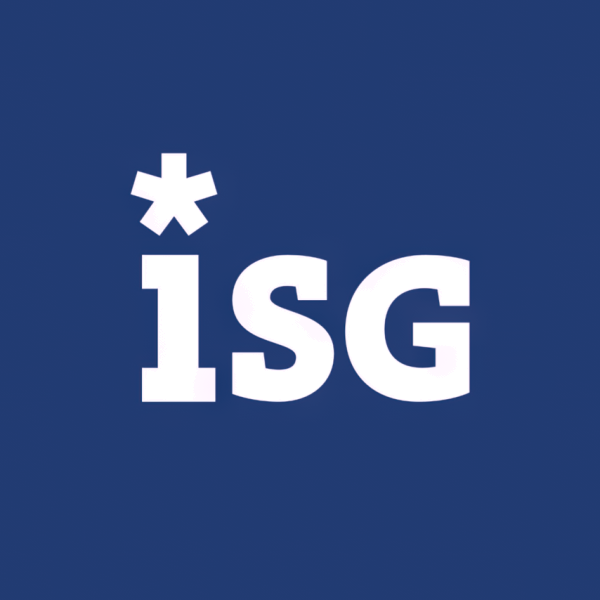Please enter your login and password
Forgot password?
Don’t have an account? Sign Up!
Please enter your email address
To create a free account, please fill out the form below.
Already have an account? Login
Mira Pharmaceuticals Announces Promising Results for MIRA-55 in M…
Ocean Power Technologies Awarded Contract for Delivery of AI Capa…
Autonomix Enters into Definitive Agreement to License Intellectua…
Scinai Immunotherapeutics Announces promising results in an in-vi…
Rumble Announces Multiple Exclusive Brands
Aries Science & Technology and Enveric Biosciences Announce Licen…
Mira Pharmaceuticals Announces Promising Results for MIRA-55 in M…
Ocean Power Technologies Awarded Contract for Delivery of AI Capa…
Autonomix Enters into Definitive Agreement to License Intellectua…
Scinai Immunotherapeutics Announces promising results in an in-vi…
Rumble Announces Multiple Exclusive Brands
Aries Science & Technology and Enveric Biosciences Announce Licen…
The ISG Index™ reports that Europe’s IT and business services market grew slightly by 1% in Q2 2024, reaching US $7.7 billion in ACV. This marks the third consecutive quarter of sequential growth since Q3 2023. The market saw contrasting trends with managed services ACV declining by 8% to US $4.0 billion, while XaaS (cloud-based services) ACV increased by 14% to US $3.7 billion.
Key highlights include:
ISG forecasts 2% revenue growth for managed services and 14% for XaaS in 2024, slightly lower than previous projections due to persistent market uncertainty.
The European IT and business services market is experiencing moderate growth, evidenced by a 1% rise in annual contract value (ACV) in Q2, reaching
Managed services saw a decline of
However, the XaaS (Everything as a Service) segment is expanding robustly with a
The geographic performance exhibits mixed results, with the UK maintaining strong figures while the Nordics and France show a decline. These regional disparities reveal the varying pace of IT adoption and economic conditions across Europe.
Investors should consider the longer-term potential of XaaS growth despite the current managed services slump, as companies are likely to continue migrating to flexible and scalable cloud solutions. However, the ongoing economic and geopolitical uncertainties necessitate a cautious approach.
The continued rise in IaaS and modest contraction in SaaS reflects a nuanced shift in how enterprises utilize and invest in cloud technologies. The
Conversely, the slight decline in SaaS investment (
The notable growth in sectors like retail (up
For retail investors, these insights suggest a bullish outlook on cloud infrastructure providers and companies specializing in digital transformation solutions. However, the slower growth in managed services and BPO presents a mixed picture, implying a more selective investment strategy focusing on high-growth areas within the tech sector.
The modest growth in Europe’s IT and business services market presents a complex landscape for investors. The uptick in managed services contracts by
The mixed performance by industry further complicates the outlook. The significant declines in BFSI (
The geographic disparities, specifically the robust performance in the DACH region (
For retail investors, this landscape suggests a balanced approach: focusing on high-growth areas like IaaS and regions with robust economic fundamentals, while remaining cautious about sectors and regions facing economic headwinds.
Combined market up
Market impacted by sluggish managed service demand, even as XaaS grows by double digits
The EMEA ISG Index™, which measures commercial outsourcing contracts with annual contract value (ACV) of US
“Having rebounded from the trough of last year’s downturn, the European market is now on a slow growth trajectory, with sluggish demand for managed services impeding overall growth,” said Steve Hall, president, ISG EMEA. “Cost optimization remains the primary driver of managed services demand, while decision-making on new initiatives continues to be slowed by macroeconomic and geopolitical uncertainty.”
Second-Quarter Results by Segment
Managed services ACV in the second quarter dipped 8 percent, to US
Within managed services, IT outsourcing (ITO) rose 7 percent, to US
Business process outsourcing (BPO), meanwhile, slumped 45 percent, to US
By industry, managed services ACV was higher in retail (up 71 percent), manufacturing (up 50 percent) and media and telecom (up 41 percent), while BFSI, Europe’s largest industry for outsourcing, dropped 31 percent year on year, reflecting a higher-for-longer interest rate environment.
ACV in the as-a-service (XaaS) segment climbed 14 percent year on year, to US
Within this segment, infrastructure-as-a-service (IaaS) rose 22 percent, to US
Geographic Performance
Although down 13 percent year on year, the region’s largest managed services market, the
First-Half Results
For the first half, combined market ACV rose 3 percent, to US
Within managed services, ITO was essentially flat (down 0.1 percent), at US
2024 Global Forecast
For the full year, ISG is forecasting 2 percent revenue growth for managed services, down 100 basis points from its April forecast, and 14 percent revenue growth for XaaS, down from its 15 percent growth forecast in April.
“Uncertainty persists in the IT and business services market, with no clear catalyst at the moment to push discretionary spending higher,” Hall said. “Activity in the important BFSI sector remains dampened, due to the higher-for-longer interest rate environment impacting the overall growth of the market. Enterprises in general continue to focus on cost optimization, and AI growth, while strong, is likely masking underlying weakness in the IT and business services industry.”
About the ISG Index™
The ISG Index™ is recognized as the authoritative source for marketplace intelligence on the global technology and business services industry. For 87 consecutive quarters, it has detailed the latest industry data and trends for financial analysts, enterprise buyers, software and service providers, law firms, universities and the media.
The 2Q24 Global ISG Index results were presented during a webcast today. To view a replay of the webcast and download presentation slides, visit this webpage.
About ISG
ISG (Information Services Group) (Nasdaq: III) is a leading global technology research and advisory firm. A trusted business partner to more than 900 clients, including more than 75 of the world’s top 100 enterprises, ISG is committed to helping corporations, public sector organizations, and service and technology providers achieve operational excellence and faster growth. The firm specializes in digital transformation services, including AI and automation, cloud and data analytics; sourcing advisory; managed governance and risk services; network carrier services; strategy and operations design; change management; market intelligence and technology research and analysis. Founded in 2006, and based in
View source version on businesswire.com: https://www.businesswire.com/news/home/20240715801522/en/
Philipp Jaensch, ISG
+49 151 730 365 76
philipp.jaensch@isg-one.com
Will Thoretz, ISG
+1 203 517 3119
will.thoretz@isg-one.com
Source: Information Services Group, Inc.
What was the combined ACV for Europe's IT and business services market in Q2 2024?
How did the managed services segment perform in Q2 2024 for Information Services Group (III)?
What was the growth rate of XaaS (cloud-based services) in Europe for Q2 2024?
How many managed services contracts were signed in Europe during Q2 2024?
What is ISG's (III) forecast for managed services revenue growth in 2024?
© 2020-2024 StockTitan.net



Leave feedback about this